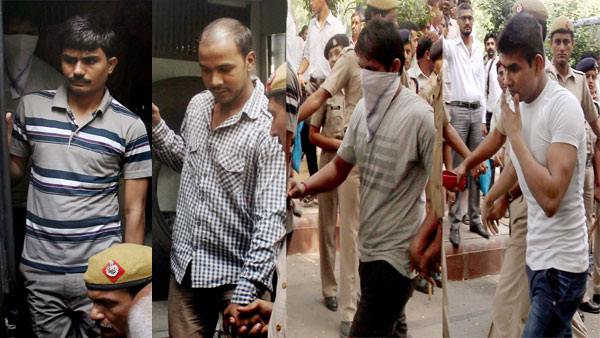
Nirbhaya’s killers likely to file curative plea before seeking Presidential mercy
New Delhi, Dec 24: The convicts in the Nirbhaya case have told the Tihar jail authorities that they would be filing a mercy petition only after they exhaust all legal remedies. The lawyers of three out of the four convicts said that they have the option to file a curative petition after their review had been rejected by the Supreme Court.
The curative petition is the final stage of litigation in the Supreme Court. It is filed after a review petition is rejected.

On
December
18,
the
Tihar
jail
authorities
issued
a
notice
to
the
convicts
of
the
Nirbhaya
gang-rape
and
murder
case
to
file
mercy
petition
within
seven
days.
As
per
the
procedure,
the
convicts
have
seven
days
to
file
a
mercy
petition
before
the
President
of
India.
The convicts have an option to file a mercy petition before the President. A mercy petition can be filed immediately after the High Court confirms the death sentence awarded by the trial court. However, in cases of death sentences, the convicts also have the provision of moving the Supreme Court.

In the Nirbhaya case, the convicts now have two options. They could either seek mercy before the President or even filed a curative plea in the Supreme Court now that their review petitions have been rejected.
What is a curative petition:
The concept first came up in the Supreme Court in the Rupa Ashok Hurra vs Ashok Hurra case in 2002. The question that came up was whether an aggrieved person was entitled to relief after a review petition was dismissed.
The court held that to cure gross miscarriage of justice and to prevent abuse of its process, it may reconsider its judgment in the exercise of the inherent powers vested with it. For this purpose, the Supreme Court said that a curative plea can be filed.
In order to file a curative plea, a petitioner will have to establish that there was a genuine violation of principles of natural justice. The petitioner shall also state that the grounds mentioned in the plea were taken up in the review plea and it had been rejected by circulation.
The petition is then circulated before the Bench that heard the case and also the three senior-most judges of the Supreme Court. If the majority of the judges are convinced, then it would be sent to the same Bench that heard the plea. In case it is found that the case lacks merit, then exemplary costs could be imposed.

The power to pardon:
The President under Article 72 has the powers of pardoning a convict. Article 72 says that the President shall have the power to grant pardons, reprieves, respites or remissions of punishment or to suspend, remit or commute the sentence of any person convicted of any offence-
- in all cases where the punishment or sentence is by a Court-martial;
- in all cases where the punishment or sentence for an offence against any law relating to a matter to which the executive power of the Union extends;
- in all cases where the sentence is a sentence of death.
There is also a provision under Article 161 under which the Governor of a State can grant pardon. This can, however, be challenged by the state.
What the courts have said:
In the Kehar Singh vs Union of India judgment of 1988, the Supreme Court had said that the grant of pardon by the President is an act of grace and therefore cannot be claimed as a matter of right.

In the Dhananjoy Chatterjee vs State of West Bengal case of 1994, the Supreme Court held that the powers under Article 72 and 161 can be exercised by the states and centre and not by the President or Governor on their own.
The state and centre would give advice on the matter. The recommendations by the government could be either to grant pardon, commute the sentence, remission, reprieve or grant respite.
Judicial review:
Once the President rejects a mercy petition, it could be subject to judicial review. If the court finds that the president had not acted arbitrarily or unreasonably, then the decision cannot be interfered with.


 Click it and Unblock the Notifications
Click it and Unblock the Notifications

































